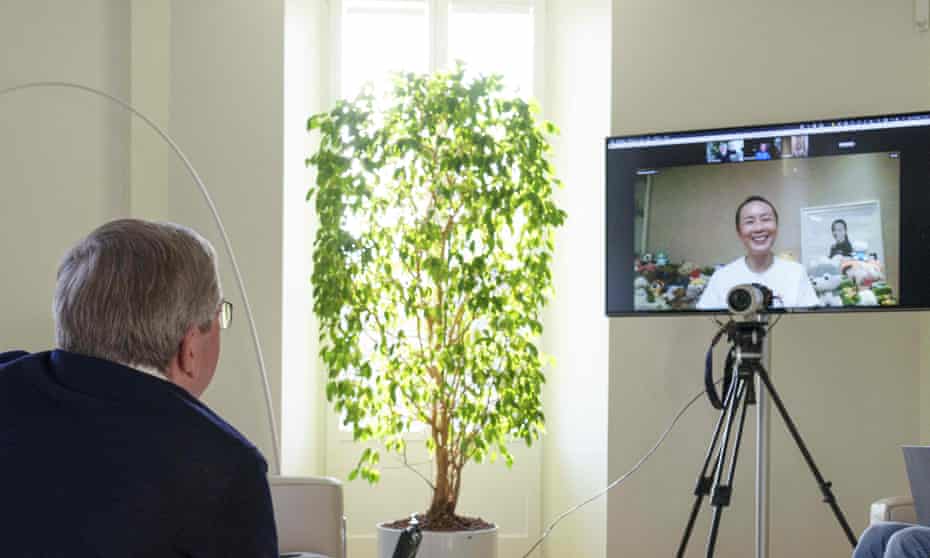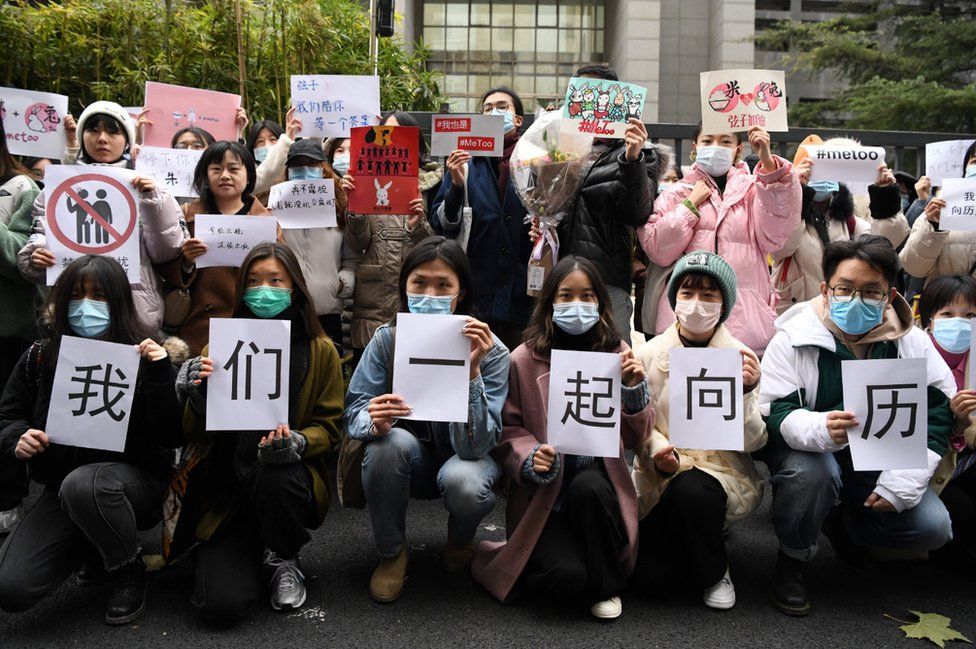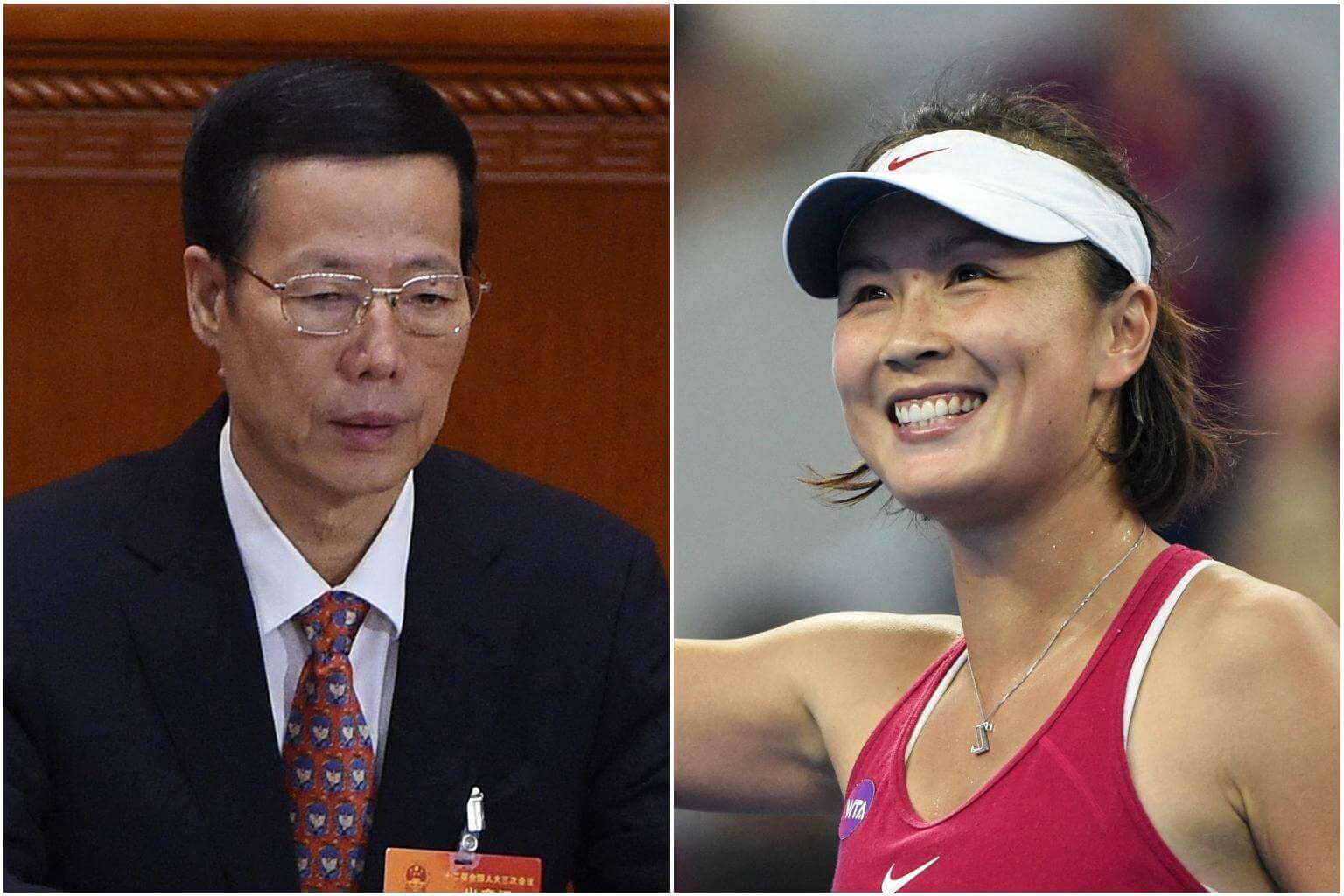On November 2, former doubles world number one Peng Shuai penned a post on the Chinese social media platform Weibo that went viral despite being taken down almost immediately. In the post, the tennis star made sexual assault allegations against a high ranking political elite from the supremely powerful Chinese Politburo.
“I know that for someone of your stature, Vice Premier Zhang Gaoli, you have said that you are not afraid. But even if it is like throwing an egg against rock, or if I am like a moth drawn to the flame, inviting self-destruction, I will tell the truth about you,” wrote Peng.
In line with China’s tendency of brushing its embarrassments under the carpet, its infamous firewall blocked the topic from online discussion. However, while it is no longer possible to search for Peng Shuai or her account on Weibo, screenshots of the post were shared thousands of times and #WhereisPengShuai began trending worldwide.
In the aftermath of her explosive revelations, Peng disappeared from the public eye for weeks. Speculation about her whereabouts prompted public figures, international organisations, and governments to question Beijing, who, along with Zhang Gaoli himself, has so far kept mum on the situation.
It is this silence perhaps that has fanned the embers of China’s repressed #MeToo movement. For a country that has become increasingly patriarchal under President Xi Jinping’s leadership, Peng’s high profile case has the potential to shake up the highest echelons of a party that “revises” its history every decade by airbrushing its mistakes.
In brave retaliation to China’s attempts to draw attention away from the political disgrace, the Women’s Tennis Association (WTA) has cancelled almost a dozen upcoming events scheduled in China and Hong Kong. In addition, the US House of Representatives on Wednesday passed Bill 428-0, which refutes the Chinese government’s claims about the safety of Peng Shuai.
I applaud Steve Simon & the @WTA leadership for taking a strong stand on defending human rights in China & around the world. The WTA is on the right side of history in supporting our players.
— Billie Jean King (@BillieJeanKing) December 1, 2021
This is another reason why women’s tennis is the leader in women’s sports. https://t.co/PHiU0S7Prw
However, such punitive measures do little to faze China. For instance, after six countries announced a diplomatic boycott of the upcoming Winter Olympics in Beijing over human rights abuses in Xinjiang and Hong Kong, China retorted by saying “nobody cares” because they hadn’t been invited in the first place, while also warning of “firm countermeasures.” Unsurprisingly, as of Tuesday morning, Weibo had censored the search topic “US diplomatic boycott of Beijing Winter Olympics.”
This dismissiveness of what it sees as ‘foreign interference’ likely foreshadows how the Chinese government will react if or when it finally breaks its silence on the Peng Shuai controversy, which has gained similar global steam. The CPC is unlikely to take kindly to what it sees as a smear campaign, particularly at a time when the ruling CPC is still basking in the afterglow of its centenary and seeking to maintain its international stature at the upcoming Olympics.
During its extravagant centenary celebrations in July, the CPC went to extreme lengths to highlight its achievements and eliminate all mentions of its failures and shortcomings. It has taken a similar approach to international claims of genocide against the Uyghur Muslims in Xinjiang. Moreover, this is not China’s first experience with attempting to deflect attention ahead of a world sporting event. During the 2008 Beijing Olympics, China reportedly restricted open media access and delayed live steams in order to deal with any possible opposition from Tibetan separatist protesters.
The CPC is thus acutely aware of how to launch a meticulously engineered counter PR campaign. In fact, the first signs of this have already been seen in the Peng Shuai case. Amid international outcry over her whereabouts and safety last month, state-owned news outlet CGTN’s international arm put out a statement that it claims was written by the tennis player. In fact, the statement even said that reports that she had levelled sexual assault allegations against Zhang Gaoli are “not true.” Soon after, a Chinese state media journalist posted a video clip on Twitter showing the tennis star smiling while standing with officials at a tennis tournament in Beijing.

To a certain degree, this appears to have worked. The International Olympics Committee and the International Tennis Federation, for example, have decided not to penalise China to avoid “politicising” the issue, and will continue hosting events in China, due in large part to the hundreds of millions of dollars that are on offer.
The ephemeral momentum generated by Peng Shuai’s allegations is ultimately emblematic of China’s #MeToo movement. In a landmark case last year, screenwriter Zhou Xiaoxuan filed a sexual harassment lawsuit against one of China’s top TV presenters, Zhu Jun. But as it happens in most cases of sexual assault, the court dismissed her case, citing insufficient evidence. Moreover, the plaintiff’s Weibo account, along with those of her supporters, were suspended or deleted for posting information about the case and offering support.
Similarly, journalist Huang Xueqin, who started the movement by speaking out about her experience of workplace sexual harassment, was detained on allegations of “inciting subversion of state power.” Another feminist activist and lawyer, Liang Xiaowen, was forced to flee China five years ago after her family and friends were threatened by state security officers. Since leaving China, she has said that conditions for women speaking out have worsened because cyberbullying of #MeToo activists has risen significantly. Internet trolls in the country have branded accusers as “manhunters” and “supporters of Western powers tearing the Chinese society apart.” While the affiliation of these trolls to the CPC is unknown, they nonetheless serve the ruling party’s interests of maintaining stability at all costs.

Where judges and trolls can’t step in, the police do. In 2015, Chinese authorities jailed five female activists for 37 days for public disorder. Their crime? They were planning to commemorate International Women’s Day by distributing stickers against sexual harassment on public transportation. This repeated suppression of the country’s #MeToo movement and its women is carefully designed to protect the country’s male-dominant leadership, who are no doubt concerned about these allegations coming their way if the movement is allowed to persist. Peng Shuai’s allegations against former Vice Premier Zhang Gaoli illustrate just how real these fears are.
However, all is not bleak. Chinese citizens have found ingenious ways to bypass internet censors with coded messages and discuss their experiences online, creating hope that the momentum generated by the tennis star’s allegations will not be lost. Although simultaneously, the Chinese firewall has also been advancing and recognising these codes. This has made it difficult to assess how well known Peng’s case is even within China. But no matter how smart censors get, the beauty of human language, over binary, lies in its equivocality. This creative use of double entendres, for instance, is slowly helping to arouse debate beyond flagged keywords and forward dissent, one post at a time.
It is clear that Peng’s case is unlike its predecessors in terms of the challenge it has mounted against the country’s deeply entrenched patriarchy. The tennis star’s global fame has made it far more difficult for the CPC leadership to indulge in censorship this time around. While Peng herself has not expanded on her earlier allegations, she has nonetheless generated hope that the country’s seemingly omnipotent leadership can one day be held to account.

